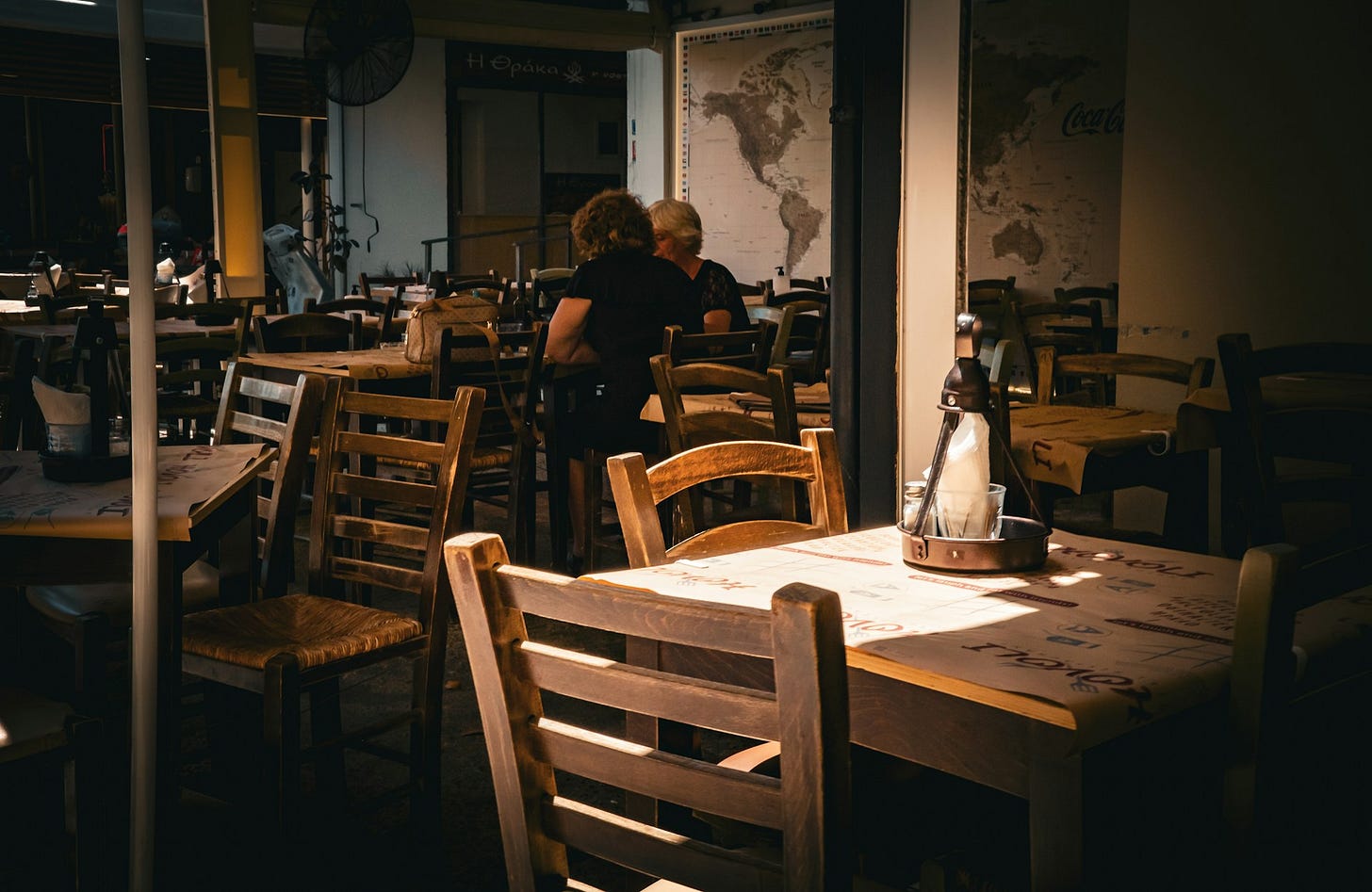On the Money: Trump’s Tariffs Are Like a Price-Gouging Restaurant
If a restaurant jacks up its prices it will lose its customers. Countries that slap huge tariffs on imports will lose their trading partners.
Econ professors will sometimes challenge their intermediate students with a simple problem on the first day of class. It goes like this: Popular restaurants often have long waits for tables, especially on weekend nights. Why don’t they just raise their prices?
Econ students all know that when demand exceeds supply, the price is supposed to rise until the two are in balance. That should mean that restaurants can tell the people standing in line that their menu prices have just gone up 50 percent.
If the line is still long, they can announce they doubled their prices. And they can keep ratcheting them up until the line is gone.
That would be a surefire way to eliminate the line. It would also almost certainly mean a significant increase in the restaurants’ profits that night.
But it’s also something no restaurant would ever do.
The reason is simple: There is probably no better way to antagonize customers than to play this kind of price-gouging game. People who made plans long in advance to eat at the restaurant that pulled this stunt may decide to suck it up, pay the higher prices and stay for the meal, but odds are they will not be coming back again any time soon. Moreover, they likely would have bad things to say about the restaurant to their friends, neighbors and coworkers, as well as on Yelp, OpenTable and other websites. The same is true for all the people in line who were chased away by the prospect of paying 50 percent more or even twice the normal amount for their meal.
This price-gouging exercise would not only eliminate a line on one evening. A restaurant that engaged in such behavior would soon not have to worry about a large number of customers lining up on any night.
Trump didn’t learn much at Wharton
Donald Trump obviously never took an econ class with a professor who gave him this quiz. If he had, he would not be looking to play his silly tariff games. A price-gouging restaurant provides a very good analogy for what he is doing.
The United States has developed relationships with its trading partners over the last few decades that have been mutually beneficial. The concept of a business relationship being mutually beneficial is apparently difficult for Donald Trump to understand, but it describes most exchanges.
People benefit from buying items from stores and online platforms, and sellers generally make a profit on the sales. Consumers may prefer to pay less, but they are usually better off making the purchase, otherwise why would they make it?
The same story applies to trade between countries. The United States benefits from being able to import items from its trading partners. Americans would have to pay more money if the items were produced domestically, or, in some cases, would have to go without the imported items altogether. (Not many bananas are grown in the United States, for example.) And exporters benefit by selling Americans goods at a profit.
That doesn’t mean the United States can’t benefit by altering trade relations, for example with a well-planned industrial policy, which is what President Biden sought to do by promoting domestic manufacturing of advanced semiconductors, electric vehicles, and clean energy technology. But if you can find evidence of a coherent industrial policy underlying Trump’s tariffs, you’re on stronger drugs than Elon Musk.
Making the United States a trade pariah
The question is: What does Trump hope to accomplish by slapping big import taxes on most of the items Americans buy from U.S. trading partners?
In the short term, some countries will likely make some concessions to limit Trump’s tariffs since they do benefit from current trade patterns, just as the United States does.
That said, Japan, South Korea, and other countries are already working vigilantly to reduce their dependence on trade with a country whose leader does not care at all about trade agreements or honoring his own prior commitments. Put simply, the United States under Trump is not a reliable trading partner. Trump makes it a principle that he gets to do whatever he wants whenever he wants.
The best way to understand Trump’s tariffs is my restaurant scenario, where a restaurant owner jacks up prices to squeeze the most money possible out of customers waiting in line. This price-gouging will likely boost profits for a few days until customers get sick of the ruse and stop coming to the restaurant.
It will turn out to be a similar story with Trump’s tariffs. Trump may wrestle some commitments from U.S. trading partners to buy more U.S. planes or agricultural products, but those benefits will be short-lived and likely outweighed by the higher prices Americans will have to pay for imports.
Longer term, as Trump makes the United States a pariah country, Americans will pay a big price because no one will want to trade with us unless there is no way to avoid it. This is already happening with foreign tourism, which is dropping through the floor. Trump is apparently on a crusade to do the same to the rest of U.S. trade.
Dean Baker is a senior economist at the Center for Economic and Policy Research and the author of the 2016 book “Rigged: How Globalization and the Rules of the Modern Economy Were Structured to Make the Rich Richer.” A version of this column originally appeared on his Substack site.
Money Trail is a fiscally sponsored project of the Alternative Newsweekly Foundation, a 501(c)(3) public charity, EIN 30-0100369. Donations are tax-deductible to the extent allowed by law.





